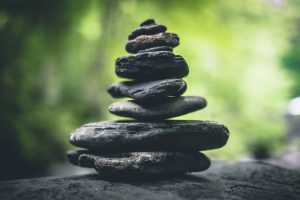by Jenny Rose | Jun 11, 2022 | Power
Can you walk away? Will you choose to?

Photo by Dan Gold on Unsplash
This piece from Leo Babauta hit my Inbox recently, and I’ve been turning it over in my mind.
Before I go any further, I need a moment to sit here and shudder. Because walking away is hard. It’s devastating. It’s an atomic bomb.
At least it’s felt that way when I’ve done it in my personal life, probably because I’ve waited, dithering, denying, distracting, hanging on and trying harder, so long for things to change. For me to change. For the other person to change. For divine intervention. For some event or person to rescue me.
By the time I do walk away I’m utterly exhausted and used up, and I hate myself far more than those affected by my walking away, though they, of course, don’t understand that. The relief inherent in walking away, the freedom, the reclamation of personal power, have only made me hate myself more.
Babauta’s article doesn’t start with the interpersonal stuff, though. He comes at it from a minimalist perspective. Can you walk away from an unhappy job? From a new car? From a deal or negotiation? From a tempting but unethical situation in which you might gain? From a new gadget or toy you really want but don’t need and can’t afford? From being too busy, too noisy, too tired, too stimulated?
Can you walk away from what the neighbors think, or your family? Can you walk away from the belief you need any particular person in your life to be happy? Can you walk away from your hopes and the beautiful dream you know is never coming true? Can you walk away from a toxic situation you’re deeply invested in? Can you walk away from the things and/or people destroying you?

Photo by Ian Espinosa on Unsplash
If you can’t walk, can you crawl away? On your belly, clawing at the ground, sobbing, naked and alone, can you crawl away?
It’s more than that, though. Will you?
Most of us can walk away if we have to. Many of us have had to and have done it. But who hasn’t felt stuck, unable to walk away, no matter how dark and dirty our fantasies are of leaving it all behind?
(Come on, I know you’ve had that fantasy at some time or another. Get in the car and drive until … until you’ve reached the edge of the world, of your life. Until you’ve run out of money or gas. Until you hit the ocean. Until you can stop.
Or go out the front door and start walking without looking back. Disappear. Vanish like a drop of water in the desert. Become nameless, faceless, rootless, homeless.)
But sometimes we feel stuck. Forever. Or what might as well be forever, because in this moment we’re so tired, so drained, so empty, there’s no comfort in the thought that things will change someday. One day.
One day is too far ahead. We’re not sure how to get through this day. But we have to. And the day after that. And the day after that. We made promises. We have responsibilities, loyalties, duties to others. We’re the keystone, the essential piece, the glue holding it together. It depends on us. If we’re not there … what? What would happen? Would everybody die? Would their lives be ruined? Would the sky fall?
Would they stop loving us?
That’s the worst fear, isn’t it? They’ll stop loving us. We love them and we have to walk away and then they’ll stop loving us. How can anyone love us when we’ve walked away? How can we love ourselves? How can anyone ever understand?
Does love require we allow ourselves to be destroyed? Are we supposed to love others more than ourselves?
Or are we allowed to walk away if we must to save our own lives? But what if no one believes us?
(For God’s sake, stop whining! Stop making such a big deal out of everything! You’re so dramatic!)
The terrible, inescapable truth about walking away is if we can’t do it, we’ve given away part of our power. If we choose to do it and reclaim our power, the price can bankrupt us financially, mentally, and emotionally.
On the other hand, sometimes the simple act of walking away sets us free in extraordinary, joyful ways we can’t even imagine.
Sometimes (perhaps hardest of all) we face annihilating consequences and experience freedom.
Can I walk away?
Will I choose to?

By Marianna Smiley on Unsplash
by Jenny Rose | Apr 16, 2022 | A Flourishing Woman, The Journey
In the online Red Cross Lifeguard Course, there’s a segment titled “When Things Don’t Go As Planned.” Every time I come across it, I smile.

Photo by NeONBRAND on Unsplash
Yes, indeedy. Because things often don’t go as planned.
Learning, in a real or virtual classroom, from text or videos or slideshows or YouTube, is necessarily simplified. The situations are controlled. Even the blood looks like cherry-flavored candy.
As a blogger, I ruminate, explore, define, proceed logically, and research. I’ve touched on so many different topics over the years here on Harvesting Stones. I’ve examined needs and boundaries, reciprocity and connection, contribution and authenticity.
However, this kind of intellectual exercise, learning at a remove, is not where the real mastery is.
The mastery comes when we put it all into action in real life. And real life is unbelievably messy. Real life is a loose cannon on a rolling deck. Real life does not go as planned.
We are occasionally plunged into chaos, into complicated experiences involving a lot of feelings and requiring all our skills. Our predictable routines and schedules turn inside out. We are not able to care for ourselves or anybody else as usual. We become exhausted. Our personal demons crawl out of our subconscious attics and cellars and play with us. Our physical weaknesses take advantage of our stress. We lose track of our power. We lose track of ourselves.

Photo by Quino Al on Unsplash
I would avoid such times if I could. I believe most of us would. Few people enjoy living in a maelstrom. The thing is, the maelstrom holds gifts, insights and growth we would never realize if we always lived serene, well-controlled lives.
I’m writing this on Wednesday morning. A week ago today, less than 24 hours before closing on the house we’re selling and the house we’re buying, closing was cancelled. Well, “extended.” I’m not sure there’s a difference, but my hope is pretty frayed right now, so I’m inclined to be pessimistic.
I thought I had been living in chaos before that abrupt last-minute change of plans, but those far-off days seem like a cake walk compared to what the last seven days have been like for me.
When our lives fall apart in painful ways, part of the stress of it is the rest of the world goes right on without giving us space and time to process, remember our resilience, and get back on our feet. I still needed to figure out how to get the car in to get the studded snows changed. I still have bills to pay. I still have a job. I still need to search the stores for cat food. I still have family birthdays to remember. The bed still needs to be made, the dishes washed, the laundry done. I want to remain consistent in my writing.
Autoimmune disease is highly opportunistic. I have not had this amount of stress since I moved to Maine seven years ago, and within a few hours of the cancelled closings my back went into spasm, which means I need all the love, rest, and care I can give myself right now, in the middle of the shit show. My body would feel better if we could close and get this move over with. And I can’t possibly move with this level of pain.
Meanwhile, the world turns. I feel guilty about my struggle when I know people in Ukraine are losing their homes, lives, loved ones, and perhaps their country. I tell myself I’m being dramatic, I’m whining, I never deserved for things to work out in the first place, etc., etc.
I told you about the personal demons crawling out, right?
So what do we do during times like these? How do we get through them? How do I turn the concepts of letting go, courage, detachment from outcomes, and emotional intelligence into tools to help myself? It’s all so clear, logical, and neat on the page/screen. I believe every word I write. It’s all organized and categorized.
When things don’t go as planned, nothing is neat, organized, or categorized. We can’t think well. Our feelings sweep us from fear to fury to despair and back again.
In my old dance group, we used to say when you feel overwhelmed, dance small.
Dance. Small.
Dancing small is focusing on breathing in and out. It’s making small movements. It’s wrapping your arms around yourself, facing a wall or a corner, closing your eyes, and concentrating on the floor under your feet. It’s deliberately sinking into yourself and letting everything and everyone else go as best you can. It might be the healing release of tears.

Photo by Leon Liu on Unsplash
This strategy doesn’t make the chaos go away, but it does give us a small resting place within the chaos. It allows us to find and hold onto ourselves. It gives us a tiny bit of power. It allows a little space for rational thought, for us to remind ourselves of what’s true:
- Nothing stays the same; all things pass
- Things invariably work out somehow, some way
- There is always much to be grateful for
- We are allowed to have feelings about our experience, and they’re allowed to be messy
- We always have some choice
- None of it is personal
This week, though in many ways painful and difficult, has also provided me with valuable practical experience in using some of my newer skills. It’s given me a chance to stay in my own power, always a worthy practice. I’ve had an epiphany about a longstanding destructive pattern in my relationships which has emotionally freed me in significant ways. Paradoxically, the current chaos has brought me clarity.
I’ve also been touched and humbled by the support I’ve received from friends and other members of my community. I am not alone.
Most of all, it’s given me a chance to deal with my feelings. It occurs to me the word “stress” is misleading. I don’t need to deal with my stress. My feelings need attention. They need to be named, welcomed, fully experienced, and released, no matter if they’re in my head, heart, or back. Managing my feelings will take care of my stress and my physical discomfort.
By the time you read this, things will have changed. Perhaps we’ll have a new closing date. Perhaps I’ll have decided to make a different plan. Perhaps we’ll still be in limbo, but it will be a different day in limbo. Today, we’ve taken my car in to get the tires changed, so that’s something taken care of. At some point, the muscles in my back will unclench and I’ll move freely again and be able to resume exercise.
Meanwhile, frogs boom, chuckle, and peep in the pond. The birds are busy and the spring dawn chorus gladdens each morning. The phoebe has returned and hunts from the barn roof. Rain falls and the sun shines. The mud is gradually drying up. I will feed the cats, play with them, clean their boxes. I’ll go to work, teach swim lessons, wipe down the locker rooms, read the pool chemicals, guard lives, answer the phone. I’ll feed myself, drink cups of tea, rest, write, read, and sleep. Time will pass. Days will pass.
It will all pass, the things that go as planned, and the things that don’t.

Photo by henry fournier on Unsplash
by Jenny Rose | Apr 2, 2022 | A Flourishing Woman, The Journey
Unless the sky falls (again), we will be moving in less than a week. It’s hard to believe. In fact, it’s impossible to believe, but that’s okay. Today is real, and I know what I need to do right now. The future can take care of itself.
As I moved around the kitchen early this morning, feeding (and tripping over) the cats, making breakfast, heating water for tea, watching the sky lighten, it occurred to me the last seven years in this old farmhouse have taught me a magnificent lesson.

Maine Farmhouse and Barn
When I moved to Maine, I had a solid idea about what I was moving into, a whole set of expectations and dreams, none of which turned out to be real.
The loss of my fantasies was heartbreaking and took me years to process. During that time, I started this blog and later remodeled it, finished my first book, wrote my second, and began my third, started publishing my fiction serially on Substack, put everything I’ve learned about emotional intelligence into action, grew deep roots in my community, found a great job I love, and became part of a second family.
At the same time, I experienced disempowerment in terms of my living space and physical surroundings. Never before have I lived in a place where I had so little power to respond to my needs and preferences, and never have I been so overwhelmed with maintenance tasks I could not take care of.
Because of my emotional intelligence training, my disempowerment was visible to me, and I was able to turn towards what I did have power over, again and again, until it became second nature. It didn’t feel good, but it was invaluable practice in managing my own power, at recognizing my own power.
Always before in my life, I’ve had plans and projects, things I wanted to buy, walls I wanted to paint, the ability to rearrange furniture, make repairs, have new shelves built, and discard what was no longer useful. Such activity gave me a great deal of pleasure and was thoroughly distracting. It was never finished, so I stayed firmly focused on externals.
In this house, that distraction has been unavailable. To stand in my own power has been to stand still with myself, to work internally, to feel my feelings, create, stretch, grow, learn, explore. It’s been lonely. It’s been uncomfortable. It’s been transformative. It’s been internal, invisible, and has nothing to do with a shiny presentation.

Photo by Alex Iby on Unsplash
Most of us would acknowledge real change and healing come from the inside, not from the surface. But understanding that intellectually is not the same as spending years living it. I would never have voluntarily given up the power to manage my surroundings. When I realized it was happening I had a choice to make, and I chose to explore this new, unexpected territory.
That choice is one of the best I’ve ever made.
I have learned a dream home, a dream wardrobe, a dream body, a dream library, is not a life. What others see of me and my possessions and home is not me. My presentation has nothing to do with my state of health, presence, and groundedness.
Our new home is old, though not as old as this farm, and it needs some work. Sure, it needs new exterior paint and other cosmetic help, but that’s not where I’ll start. Those changes are fun and everyone can see and appreciate them, but the invisible, internal issues like plumbing, wiring, and insulation are what will really make a difference to my experience living there.
The looks of the new house are not what matters. It’s the life we create inside it that matters.
The color of my hair doesn’t matter. It’s what’s inside my head that matters.
The clothes I wear don’t matter. It’s the health and peace in my body that matter.
Attaining perfection (and perfect control) of my space is not what matters. It’s the ability to manage my thoughts and feelings, maintain integrity, and live well that matter.
In these last few days of packing, sorting, and endless tasks and details, at every step I’m thinking about what I learned and how grateful I am for the lesson. I didn’t choose to learn it. I wouldn’t have volunteered to learn it. I was forced into it, tricked into it, even.
But that’s not important. My life has consistently taken me exactly where I need to go, in spite of how much I whine and complain about some of the places I’ve been. Now, just ahead, is a whole new chapter.
I wonder what I will learn.
(Next weekend we’re moving, so you won’t see a post here from me. I’ll be back in two weeks!)

Photo by Michal Balog on Unsplash
by Jenny Rose | Mar 19, 2022 | Choice, Power
I subscribe to a Substack newsletter for writers by Lani Diane Rich. A few weeks ago, she wrote about being bad. On purpose. It made me laugh.

Photo by 小胖 车 on Unsplash
I’m one of those people who has a recording angel at my shoulder, busily writing down every single less-than-perfect thing I think, say, or do. It’s a full-time job.
The idea of being bad – on purpose! – caught my attention.
Well, maybe not on purpose. Maybe just living in such a way that “bad” and “good” don’t enter into … anything.
But then again, maybe on purpose. Maybe writing badly, acting badly, cleaning a dish badly, or eating a whole pizza and letting the grease run down my chin without regret or guilt on purpose.
My horror at the idea (not about the pizza, though) makes me giggle.
This writer makes a great point. Doing things badly, in general, will result in negative feedback of one kind or another. But so does doing things well. In fact, sometimes doing things well results in more negative feedback than doing them badly! Then there’s always the average middle ground: doing things well enough to get by, thereby avoiding attention for being really good or really bad.
Ugh. I’d rather be bad than fit myself into average if I can’t manage good.
How many times in my life have I thought or said, “I’m doing the best I can”?
Hundreds. Thousands. Hundreds of thousands.
Why is it my job to do the best I can?
It used to be my job because I had to justify my existence. However, I’ve outgrown that mindset now and I can’t take it very seriously. I don’t have to justify my existence anymore.
I also did it to stay safe and get loved.

Photo by Laercio Cavalcanti on Unsplash
It didn’t work.
I do it to make a deal with the Universe. I’ll do this thing as best I can if you’ll make sure I’m OK.
Hard to say if that’s effective. I’ve always been OK, but I might have been without killing myself trying to be good.
I do it to prepare for failure. I’ll try as hard as I can, and if (when) I fail, at least I’ll know I gave it my best.
Failure and success. I’ve redefined those. I haven’t always gotten the success I’ve wanted, but that doesn’t mean I’ve failed. In fact, some of my most stunning missteps and miscalculations have turned out to be life-changing gifts.
In the end, I have one good reason for being good, and that has to do with my own integrity. It’s important to me to know I’m doing the best I can in everything I do. I don’t expect praise or rewards. I’ve learned (sadly) it’s no guarantee my needs will be met. I know better than to expect reciprocity or appreciation.
It’s simply who I choose to be in the world.
But here’s a question: are “bad” and “good” mutually exclusive? Would I be more flexible, more creative, healthier, happier, and more whole if I could be bad as well as good? Is there unexplored territory in badness? Could the ability to choose to be bad be part of being good?
Huh.
Could I choose to be some degree of bad along with good?
Being skilled, productive, effective, useful, kind, reliable, honest, etc., etc. all the time takes a lot of energy.
A lot of energy.
When we’re kids, we’re taught good things come to people who are good.
It would be nice if life was that easy.
I can’t help but notice while I’m doing my best from dawn to dusk some other people are not. Other people are sloppy and lazy and careless and they’re not struck down dead by a celestial lightning bolt.
A little voice in my head says that’s all the more reason I have to be continually good, to pick up the slack the fuck-it-I-don’t-care people leave.
Bullshit. I’m not the Cosmic Miss Fix-It.
Maybe it’s okay to think about taking a break from the job of being “so goddamn excellent all the time,” in Lani’s words.
Everyone needs a day off now and then. A lunch break. A vacation. Maybe I’ve worked too much overtime being excellent. Maybe I’ve lost my work-life balance.
Maybe.

By Sean Stratton on Unsplash
by Jenny Rose | Mar 5, 2022 | Connection & Community, Emotional Intelligence
Courtney Carver from Be More With Less dropped this little spring blossom in my Inbox recently. I’m not on Instagram but she passed this on from @sierranwells from @theshineapp.
Paraphrasing, giving our all leaves us empty. It’s unregulated and indicates questionable boundaries. A better choice is to give our best.
Don’t give your all. Give your best.
What an amazing distinction! When I say that to myself, I feel as though a mountain has been lifted from my shoulders.

Photo by Toa Heftiba on Unsplash
I don’t have to give everything and everyone my all. I can choose instead to give certain people, situations, and efforts my best. My best financial donation. My best support. My best effort. My best investment. My best love.
My all is reserved for me and my writing.
The filter between my all and my best immediately clarifies life and choices. It frees me to recognize when I’ve done enough. I’ve given my best. I can stop now. I don’t have to give and give and give until I have nothing left, not even enough to crawl away. I have the power. I make the choices. I decide where the boundaries are. I make an offering of my best, and if it’s not wanted or useful, I move on.
After all, if my best hasn’t been good enough, likely my all won’t be, either. I know that intellectually, but I’ve lived my whole life with the firm conviction that my best is inadequate and withholding. What’s required of me is to give my all, every last penny, every last bit of my time, energy, patience, and love. Everything. No boundaries. No reserves. No personal needs. Boundaries, reserves, and needs are selfish.
Wait, says a little voice inside me. Doesn’t unconditional love mean giving it all continuously, no matter what?
Does it? Is that what unconditional love means?
Unconditional love means love without strings attached.
I don’t know if human love is limitless. I don’t know if mine is. I’ve loved several people with everything in me before, but today I don’t feel as though any of those loved ones found my love useful or even noticed it for what it was. Perhaps it was lost in translation.
Perhaps they never wanted it or needed it in the first place.
I still love some of those people, because they are woven into my flesh and bone, but we are not actively connected and for the most part my love is mute and suffering. I have not found an acceptable way to give it, which is to say I have not found a way to feel it’s recognized, valuable, received or even welcome. It’s unconditional, but it’s unwanted.
Yet I do know one person who longs for my best and my all – all my unconditional love, all my compassion and empathy, all my strength and wisdom, all my creativity and courage.

Photo by freestocks.org on Unsplash
Me.
As I approach my 60s, I spend less and less time thinking about how to give my all and waiting for scraps and crumbs to come back to me. Now I’m focused on how to connect with and unconditionally love myself. Because I deserve it. And it’s my turn. And I want me. I need me.
The people (and cats) in my life get my best. Sometimes that seems regrettably inadequate, but I’m intentional about giving my best to those I interact with, work with, and live with. I give my best to what I do in life, from cleaning the bathroom to teaching a child to swim. My best love, care, and effort are no mean contributions to my loved ones and my community.
But I don’t owe my all to anyone. Not at this point in my life. I’ve never yet given my all without subsequent emotional bankruptcy it took me years to recover from. I’ve never yet felt my all was reciprocated. Perhaps that’s as it should be.
I thought I had to give my all. I thought that’s what love was. I thought one proves love, commitment, loyalty, what have you, with an investment of one’s all. I thought that investment was guaranteed to provide rich returns.
So far, I’ve failed to reap rewards from that strategy. I’m rethinking my investment plan. Might it be that giving my all to me increases the quality of my best to others? Could it be that giving my best to others will prove a better investment than giving my all? Is this a case of working smarter, not harder?
Maybe our all is only useful when we give it to ourselves. Maybe it doesn’t work elsewhere because it’s not supposed to. Maybe our best is better for the people around us.
In any case, I feel lighter, freer, and healthier, both in myself and in my relationships, when I endeavor to do my best within healthy boundaries and reserve my all for myself and my writing.
















